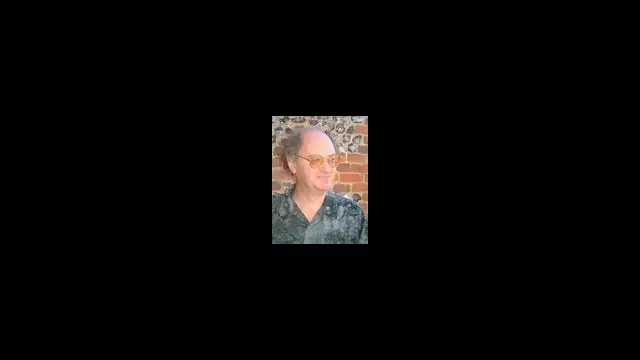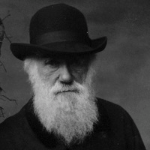Foresight in Music

11 years
4.9K Views
Category:
Description:
The idea of music as a harbinger of future social trends is associated with French banker, economist, and all-purpose intellectual Jacques Attali, but the idea that music gives access to a time that is different from that of the everyday world seems to be as old as music itself. The conception of musical works as abstract objects, located in time but not intrinsically temporal, reflects Platonic and medieval thinking yet remains fundamental to the still dominant orthodoxies of modernist music aesthetics and theory: just as in a recording, time is translated into space, with the past always present and the future always already known. Such rationalising models do little justice to the varieties of musical time as experienced, performed, and indeed composed. As practice rather than theory, music is highly unpredictable, both at the micro-level of individual musical experiences and the macro-level of changes in musical style and in patterns of consumption. Hence the conspicuous lack of foresight that has devastated the contemporary record industry, which attempted to perpetuate an outdated business model rather than embracing the technological and social changes that Henry Jenkins, Lawrence Lessig, and Aram Sinnreich respectively call convergence culture, remix culture, and configurable culture. Sinnreich provides the most fully developed version of Attali’s idea of music as harbinger of social trends: networked patterns of musical production and consumption are seen as a template for democratised patterns of social interaction. But the linkage of musical micro-level and social macro-level remains unconvincing, and many aspects of Sinnreich’s configurable culture can be found in earlier musical cultures (it is only modernist aesthetics and theory that blind us to them). I conclude that, rather than seeing music as providing special insight into the future, it is more productive to see it as a privileged arena within which to understand aspects of the present.
Biography
Nicholas Cook took up the 1684 Professorship in 2009. He was formerly Professorial Research Fellow at Royal Holloway, University of London, where he directed the AHRC Research Centre for the History and Analysis of Recorded Music (CHARM), and before that taught at the universities of Hong Kong, Sydney, and Southampton, where he also served as Dean of Arts. A musicologist and theorist, he holds separate degrees in music and in history/art history. His articles have appeared in leading British and American journals, and cover topics from aesthetics and analysis to psychology and pop.
His books, mostly published by Oxford University Press, include A Guide to Musical Analysis (1987); Music, Imagination, and Culture (1990); Beethoven: Symphony No. 9 (1993); Analysis Through Composition (1996); Analysing Musical Multimedia (1998); and Music: A Very Short Introduction (1998), which is published or forthcoming in twelve other languages and to which a special issue of Musicae Scientiae was devoted. Oxford also publish Rethinking Music (1999), coedited with Mark Everist, and Empirical Musicology: Aims, Methods, Prospects, coedited with Eric Clarke (2004); he also coedited the Cambridge History of Twentieth-Century Music (with Anthony Pople, 2004) and The Cambridge Companion to Recorded Music (2009). His latest book, The Schenker Project: Culture, Race, and Music Theory in Fin-de-siècle Vienna (Oxford, 2007), received the Wallace Berry Award of the Society for Music Theory in 2010. A further collection is in press: Music as Performance: New Perspectives Across the Disciplines, coedited with the dramaturgue Richard Pettengill (Michigan University Press). Also nearing publication is a book on performance analysis, integrating computational approaches developed at CHARM with those of cultural musicology and inter-disciplinary performance theory, while he is currently working on a study of recordings of Webern’s Piano Variations funded by an AHRC Fellowship. Planned projects thereafter includes books on music as creative practice and on relational musicology.
A former Editor of the Journal of the Royal Musical Association, Nicholas Cook was Chair of the Music Panel in the Higher Education Funding Councils’ 2001 Research Assessment Exercise. He is a Fellow of the British Academy and of the Academy of Europe.
Biography
Nicholas Cook took up the 1684 Professorship in 2009. He was formerly Professorial Research Fellow at Royal Holloway, University of London, where he directed the AHRC Research Centre for the History and Analysis of Recorded Music (CHARM), and before that taught at the universities of Hong Kong, Sydney, and Southampton, where he also served as Dean of Arts. A musicologist and theorist, he holds separate degrees in music and in history/art history. His articles have appeared in leading British and American journals, and cover topics from aesthetics and analysis to psychology and pop.
His books, mostly published by Oxford University Press, include A Guide to Musical Analysis (1987); Music, Imagination, and Culture (1990); Beethoven: Symphony No. 9 (1993); Analysis Through Composition (1996); Analysing Musical Multimedia (1998); and Music: A Very Short Introduction (1998), which is published or forthcoming in twelve other languages and to which a special issue of Musicae Scientiae was devoted. Oxford also publish Rethinking Music (1999), coedited with Mark Everist, and Empirical Musicology: Aims, Methods, Prospects, coedited with Eric Clarke (2004); he also coedited the Cambridge History of Twentieth-Century Music (with Anthony Pople, 2004) and The Cambridge Companion to Recorded Music (2009). His latest book, The Schenker Project: Culture, Race, and Music Theory in Fin-de-siècle Vienna (Oxford, 2007), received the Wallace Berry Award of the Society for Music Theory in 2010. A further collection is in press: Music as Performance: New Perspectives Across the Disciplines, coedited with the dramaturgue Richard Pettengill (Michigan University Press). Also nearing publication is a book on performance analysis, integrating computational approaches developed at CHARM with those of cultural musicology and inter-disciplinary performance theory, while he is currently working on a study of recordings of Webern’s Piano Variations funded by an AHRC Fellowship. Planned projects thereafter includes books on music as creative practice and on relational musicology.
A former Editor of the Journal of the Royal Musical Association, Nicholas Cook was Chair of the Music Panel in the Higher Education Funding Councils’ 2001 Research Assessment Exercise. He is a Fellow of the British Academy and of the Academy of Europe.


